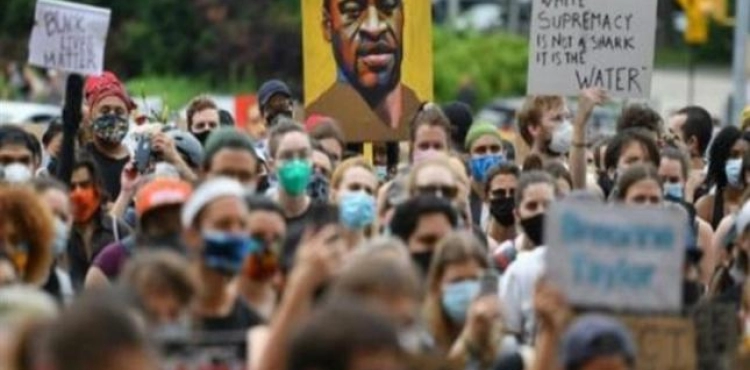Researcher Meredith Clark believes that the mobilization in the United States against racism in the street and through social networks since the killing of George Floyd was suffocated by a white policeman, "it does not indicate a deep awareness, but rather On the contrary".
Thanks to these networks and platforms, "the university professor specializing in the media at the University of Virginia asserts," people feel annoyed and find themselves face to face with racism and they recognize themselves and the victims. They are affected, but their understanding and awareness remain superficial. "
Despite many activities with movements such as "Black Lives Mater," black American women educators indicate the limitations of these networks.
They especially doubt that the intense sharing of videos showing police violence has led to a change in public opinion that goes beyond instinctive reactions.
"It is good to accumulate evidence, but we are under the shock of the present moment and not in the path of long-term thinking," explains Professor Keira Gunt, of the University of Albany.
The scene of the killing of black men by members of the police is repeated with Michael Brown in Ferguson in 2014 to Freddy Gray in Baltimore in 2015 and Keith Lamont in Charlotte in 2016.
And every time anger turns into riots.
"The video is shared because it is so disgraceful, and we live with the shock again, which provokes feelings again ... until things get back to normal," says Keiraunt.
The ethnomusicologist remembers the beginnings when social media gave a sense of freedom.
"It was a way for us, the university professor, those with degrees and activists, to have an audience without having to whisper and impose self-censorship as if we were the only black person in the hall," she says.
It was then among the unofficial "Black Twitter" group that formed at the end of the first decade of the millennium. "The tag was + I see you. I see in you my humanity and my experience with marginalization +," she explains.
A decade later, the "dishonorable" media misfortune is regretted.
Others argue that these platforms do not form a network of salvation because they do not break down racial and social barriers but rather reshape them.
"On Facebook and other platforms we live in our bubbles," author and journalist Joshonda Sanders says. "If you don´t have black friends in real life, you won´t have black friends online too, and they won´t tell you about the minor racist attacks they are exposed to on a daily basis."
"The most influential white men are not on the net, they make decisions while playing golf, over the phone, or at lunch," she added.
But there is no alternative to it and the struggle over networks imposes itself de facto on many black Americans.
"We constantly struggle to be considered human beings like others and have a life to live," explains Meredith Clarke, citing the "dual perception" phenomenon that developed his theory by William Edward Bogart du Bois.
And the sociologist at the turn of the twentieth century said that black Americans always live with the view of "non-blacks to them" in addition to their view of themselves.
"Just to live and be what I am in my body is a form of struggle," says the posterist, Ripoon.
She now lives in San Francisco but is originally from Minneapolis and has hesitated to call for support for local mobilization.
"I was asking myself what can I do ... and then my friend got angry on social media," she says. She said to us, "+ You, the artists who have admiration, do nothing so that you are not told you are not professional! I realized that the solution is before my eyes."
Like many black artists, great efforts are being made to raise funds through "Instagram" and to mobilize the ranks of the black community in the framework of the initiatives and messages addressed to the authorities, petitions and educational educational contents.
"I am basically very active as a black and gay woman working in production and doing what she loves. But this is no longer enough," she concludes.












